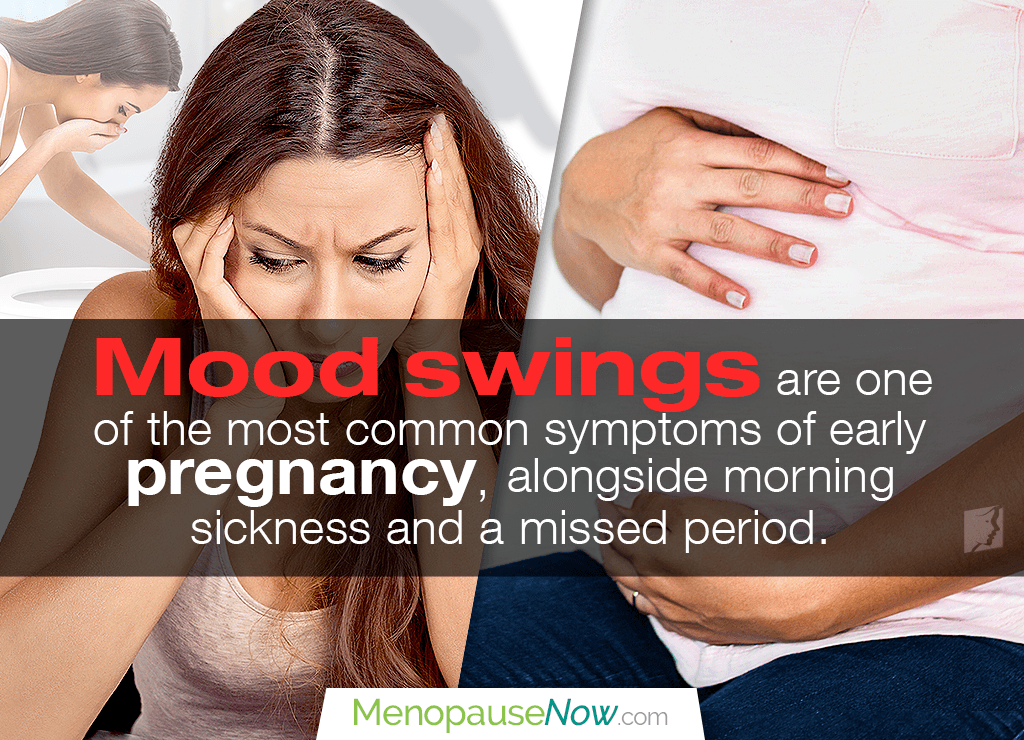Moodiness as a sign of early pregnancy is common, along with morning sickness and, of course, a missed period. Accordingly, understanding mood swings and early signs of pregnancy as well as how to handle them will help women know how to take charge of their reproductive health.
Understanding Mood Swings during Pregnancy
While mood swings are technically considered a symptom, as signs are measurable indications of a condition, women often use both terms interchangeably, especially when referring to the first manifestations of pregnancy. For the purpose of this article, we will follow suit.
Mood swings are drastic changes in emotional state that are often inexplicable. They can leave a woman feeling anxious and depressed and can have an adverse impact on personal relationships.
They frequently occur in the first trimester, between weeks 6 to 10, and then again toward the end of the pregnancy as the body prepares for labor.1
The most common underlying cause is hormonal fluctuations of estrogen and progesterone that influence neurotransmitters in the brain, which are chemicals that regulate mood.
Aside from the hormonal imbalance, mood swings during pregnancy can also be provoked byfatigue, physical stress, and changes in metabolism.
Nevertheless, while mood swings can be one of the most difficult early pregnancy symptoms to deal with, there are other early symptoms of pregnancy of which women should be aware.
Other Early Symptoms of Pregnancy
While symptoms differ for each woman, during the early months of pregnancy, some of the most universal are:
- Nausea and vomiting, often called “morning sickness”
- Missed period
- Enlarged and tender breasts
- Backaches
- Headaches
- Frequent urination
- Fatigue and exhaustion
- Food cravings or aversions
It is crucial to keep in mind that as soon as a woman suspects pregnancy, she should visit her doctor to run appropriate diagnostic testing to confirm.
Coping with Mood Swings and Early Signs of Pregnancy
Pregnancy is a tumultuous time riddled with many changes for women, both physical and psychological. So, in order to ease the transition, there are several methods women can instill to improve their quality of life.
- Resting. Many women report not getting quality sleep at night during the first trimester. As such, women should aim to plan, schedule, and prioritize sleep, and daytime napping as necessary.
- Exercising regularly. Physical activity can uplift mood, promote hormonal balance, encourage healthy sleeping patterns, regulate weight, and more.
- Relieving stress. Practicing prenatal yoga, meditation, and deep breathing techniques or going to a therapist can help women clear their minds and ultimately lower their stress levels and better control their emotions.
More Information
Symptoms will often diminish in intensity or frequency as a woman progresses through pregnancy, and they will generally disappear after she gives birth. Therefore, learning how to manage mood swings and other early signs of pregnancy from the beginning can prove helpful throughout the entire gestation. By working hand in hand with your medical practitioner, it is possible to find a comprehensive plan that suits mother and baby.
Sources
- American Pregnancy Association. (n.d.). How to Treat Stress During Pregnancy | Pregnancy Symptoms - Early Signs of Pregnancy. Retrieved October 23, 2019, from https://americanpregnancy.org/naturally/treat-stress-naturally-pregnancy/ | https://americanpregnancy.org/getting-pregnant/early-pregnancy-symptoms/
- March of Dimes. (n.d.). Stress and Pregnancy. Retrieved October 23, 2019, from https://www.marchofdimes.org/pregnancy/stress-and-pregnancy.aspx
- National Sleep Foundation. (n.d.). Sleeping By the Trimesters: 1st Trimester. Retrieved October 23, 2019, from https://www.sleepfoundation.org/articles/sleeping-trimesters-1st-trimester
Footnotes:
- American Pregnancy Association. (n.d.). Mood Swings during Pregnancy. Retrieved October 23, 2019, from https://americanpregnancy.org/pregnancy-health/mood-swings-during-pregnancy/




